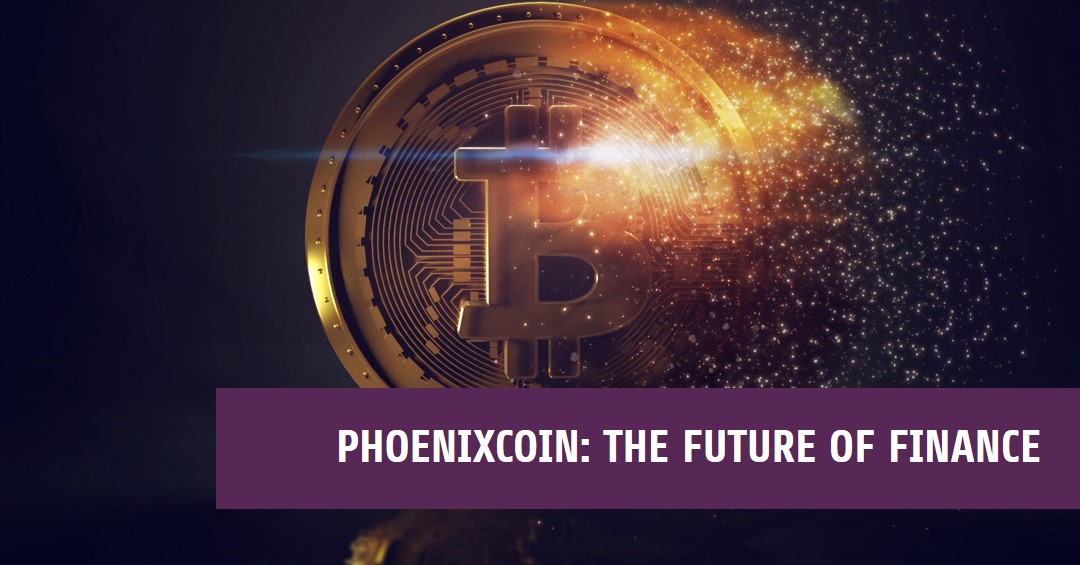In the ever-evolving landscape of finance and technology, PhoenixCoin has emerged as a powerful disruptor. This article delves into the heart of PhoenixCoin, exploring its origins, technology, unique features, and its potential to reshape traditional finance. For investors seeking to stay informed and make smart decisions, IMMEDIATE-SMARTER.COM offers a valuable resource. This site connects traders with investment education experts, providing insights and knowledge to navigate the dynamic world of cryptocurrencies, including the intriguing developments surrounding PhoenixCoin.
The Birth of PhoenixCoin
PhoenixCoin had its genesis in the wake of the 2008 financial crisis, as a response to the inherent flaws in the traditional banking system. Its founders envisioned a decentralized, borderless, and trustless financial ecosystem. The development team and key contributors have since worked tirelessly to bring this vision to life.
PhoenixCoin Technology
At the core of PhoenixCoin’s success lies its robust technological infrastructure. Utilizing blockchain technology and cryptographic techniques, PhoenixCoin ensures secure and transparent transactions. It employs various consensus mechanisms, such as Proof of Stake (PoS) and Proof of Work (PoW), to maintain the integrity of its network. Additionally, smart contracts and decentralized applications (DApps) enable programmable, self-executing agreements on the platform.
Unique Features of PhoenixCoin
Security and Anonymity
PhoenixCoin prioritizes user security and privacy. Its blockchain encrypts transactions, making it nearly impossible for malicious actors to compromise data. Users can enjoy pseudonymity, ensuring their financial activities remain confidential.
Scalability and Transaction Speed
One of the challenges of traditional finance is the slow and costly nature of cross-border transactions. PhoenixCoin addresses this with lightning-fast transaction speeds and low fees, making it an ideal solution for global commerce.
Environmental Sustainability
Unlike traditional financial systems that rely heavily on energy-intensive infrastructure, PhoenixCoin is committed to environmental sustainability. Its PoS mechanism consumes significantly less energy compared to PoW, aligning with the global push for eco-friendly solutions.
PhoenixCoin vs. Traditional Finance
Traditional Banking System Challenges
Traditional banks are plagued by various issues, including lengthy transaction times, high fees, and limited accessibility. Additionally, centralized systems are vulnerable to fraud and security breaches, putting users’ assets at risk.
PhoenixCoin’s Solutions to Financial Issues
PhoenixCoin addresses these issues by offering a decentralized alternative. With its efficient transaction processing, low fees, and focus on security, it presents a viable solution to the problems plaguing traditional finance. Moreover, its global accessibility ensures financial inclusion for the unbanked and underbanked populations.
Disrupting the Status Quo: Pros and Cons
While PhoenixCoin brings undeniable advantages, it also faces resistance and challenges from established financial institutions and regulatory bodies. The decentralization of finance poses regulatory questions and may require careful navigation to ensure a smooth transition.
Adoption and Use Cases
PhoenixCoin in Everyday Life
PhoenixCoin’s adoption extends beyond the cryptocurrency enthusiast community. It’s increasingly becoming a part of everyday life, with merchants accepting it as a means of payment, and individuals using it for day-to-day transactions.
Cross-Border Transactions and Remittances
The global nature of PhoenixCoin makes it an attractive option for cross-border transactions and remittances. Users can transfer funds internationally with minimal fees and without the need for intermediaries, revolutionizing the remittance industry.
PhoenixCoin in Emerging Markets
In regions with limited access to traditional banking, PhoenixCoin offers an opportunity for financial inclusion. Users can access financial services without relying on physical banks, empowering individuals and communities.
Regulatory and Legal Challenges
Government Responses to PhoenixCoin
Governments worldwide are still grappling with how to regulate PhoenixCoin and similar cryptocurrencies. Responses vary, with some embracing the technology while others impose strict regulations or outright bans. Striking a balance between innovation and security remains a challenge.
Compliance and Regulation
PhoenixCoin’s success hinges on its ability to navigate a complex regulatory landscape. It must comply with anti-money laundering (AML) and know your customer (KYC) regulations, all while preserving its core principles of decentralization and privacy.
Potential Future Developments
The regulatory environment surrounding PhoenixCoin is dynamic and subject to change. Future developments may shape how governments and institutions interact with this emerging financial technology.
Future Outlook and Potential Challenges
Growth Prospects
PhoenixCoin’s trajectory points to continued growth and adoption. As it becomes more integrated into the global financial ecosystem, its value and utility are likely to increase.
Technological Advancements and Upgrades
Ongoing development and upgrades will be critical for PhoenixCoin’s sustainability and relevance. Innovations such as layer 2 scaling solutions and interoperability with other blockchain networks may play a pivotal role.
Potential Obstacles to PhoenixCoin’s Success
Despite its promise, PhoenixCoin faces potential challenges such as scalability issues, competition from other cryptocurrencies, and evolving regulatory pressures. Overcoming these hurdles will be essential for its long-term success.
Conclusion
PhoenixCoin has risen from the ashes of traditional finance, offering a compelling alternative to the status quo. With its innovative technology, commitment to security and privacy, and potential to reshape the financial landscape, PhoenixCoin represents a beacon of hope in the ever-changing world of finance. As it continues to evolve, it has the potential to empower individuals, redefine global commerce, and challenge the foundations of traditional finance.







